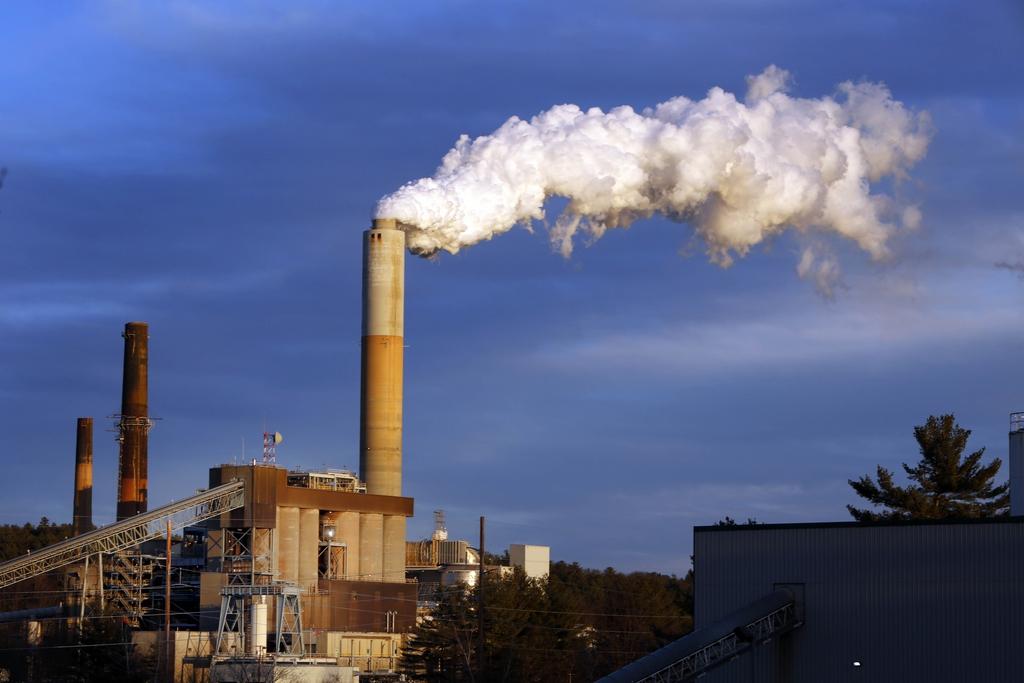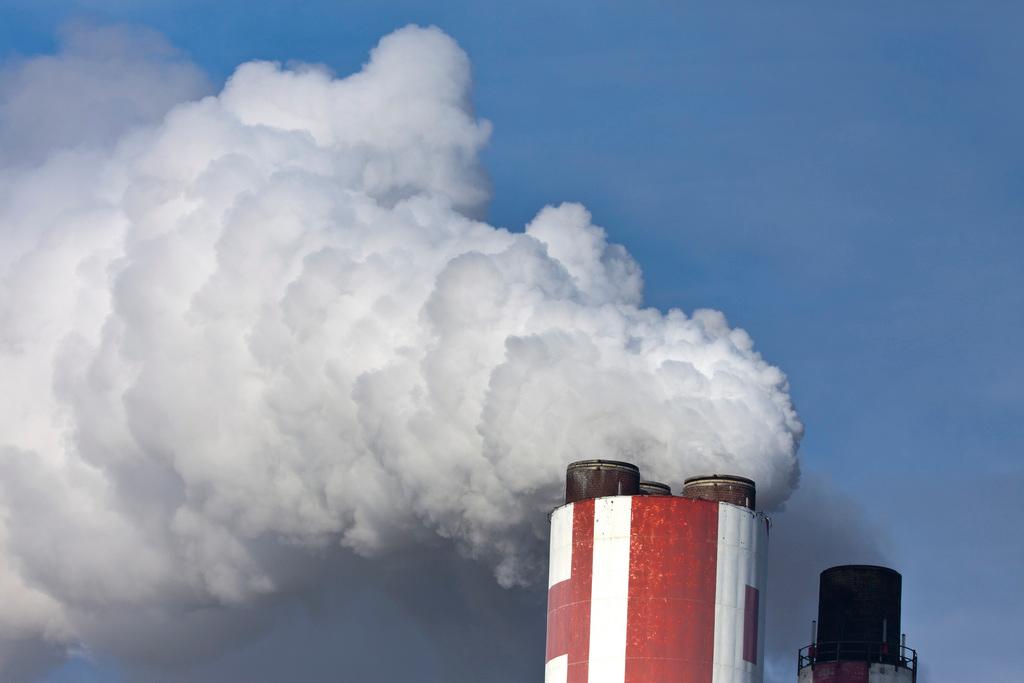How will energy trading respond to climate change targets?

As other countries follow Switzerland’s lead in setting targets for greenhouse gas cuts, questions arise as to how industry will respond. swissinfo.ch looks at what these moves globally may mean for the energy trading sector.
Switzerland became the first country last month to announce how it would contribute to a global climate treaty that the United Nations hopes to clinch next December in Paris. It set targets of 50% reductions in carbon dioxide and other warming gases from 1990 levels by 2030, with 30% coming from within the country and 20% achieved by market trading or offsets.
At the opening of the international Geneva Motor Show this month, Environment Minister Doris Leuthard reinforced that commitment with the Swiss view that a greener future is inescapably caught up with and good for business.
“The environment has become a commercial concern,” she said.
Leuthard, for example, explained that the cabinet was working on proposals for taxing various means of fossil fuel burning from transportation because it represents 32% of emissions.
But further up the supply chain, energy traders who deliver fossil fuels to oil companies are responding in many different ways.
Biofuels
For Kevin McGeeney, CEO of Geneva-based brokers SCB Group, it’s a good time to focus on so-called biofuels, which are produced from living things, along with biomass – derived from plants and animals – and other solid renewable energies.
That’s because rich countries are able to meet or exceed their carbon cutting targets now that energy consumption is slowing in the wake of the global financial crisis and more recent shifts from coal to gas and toward the use of cleaner-burning vehicles, he says.
“A clarity of law will make it relatively easy [for brokers] to adapt the fuels that they use to meet the targets,” McGeeney said.
Sustained fossil fuel demand
Giacomo Luciani, who co-directs a study programme in oil and gas leadership at Geneva’s Graduate Institute, says global reliance on oil especially for transportation should continue to grow at least until mid-century, reflecting the long-term nature of climate change targets.
“I don’t know of any scenario that says the opposite,” he said.
Some of the world’s biggest energy trading firms, including Trafigura, Vitol, Mercuria and Gunvor, are headquartered in Geneva, with Glencore based in Zug.
The firms also invest in shipping, storage, refining and production, contributing some 3.5% to Switzerland’s GDP.
But as demand falls in Western countries for oil, gas and coal, Asia’s fossil fuel market is growing.
Singapore and Shanghai are regional trading centres – and places where Swiss firms have a rising presence.
Glencore has said 2015 could be a “blowout” boom year for its oil trading. Its website declares that fossil fuels will remain “an important cornerstone of the global energy mix”, but they can still contribute to a lower carbon world when used in conjunction with “high-efficiency low-emission technologies”.
Government pressure
Switzerland’s commitment to cut greenhouse gas emissions by 50% by 2030 would affect a wide range of mainly domestic sectors, including agriculture, waste, industry and energy, though its impact would be felt much less globally since the country contributes to only about 0.1% of the world’s carbon emissions.
Swiss companies’ foreign operations, however, also could be affected by new regulations because “what we are looking at is the potential over the whole supply chain”, said Andrea Burkhardt, Switzerland’s head of climate at the environment ministry.
“We hope that these signals we gave by setting targets will give clear signals to investors so they can channel their investments,” she said.
Most trading companies contacted for this article did not respond for comment.
Trafigura, however, acknowledged it is “engaged in discussions” around a possible climate treaty in Paris.
“As a major transporter of physical commodities from point of origin to point of sale, we have direct commercial interest in exploring and securing efficiencies in the supply chain, including reduced carbon emissions,” its media department told swissinfo.ch.
The environment ministry also announced longer-term goals of reducing emissions by 70% to 85% by 2050, but Luciani said a call for zero or low emissions by the second half of the century is unrealistic without continued reliance on nuclear energy and advances in being able to capture and store carbon underground.
And in the meantime, he said, the way in which future cuts in emissions could affect energy traders “is not what will keep them awake at night”.

In compliance with the JTI standards
More: SWI swissinfo.ch certified by the Journalism Trust Initiative


You can find an overview of ongoing debates with our journalists here. Please join us!
If you want to start a conversation about a topic raised in this article or want to report factual errors, email us at english@swissinfo.ch.